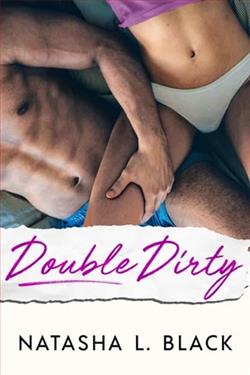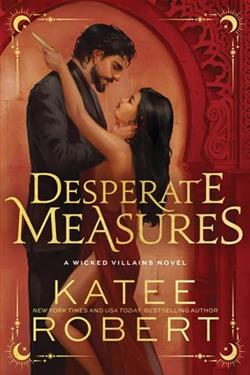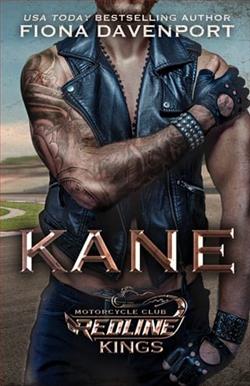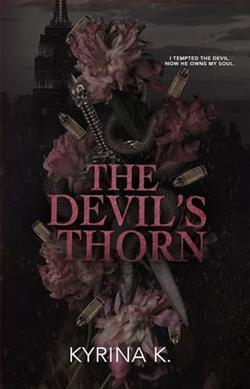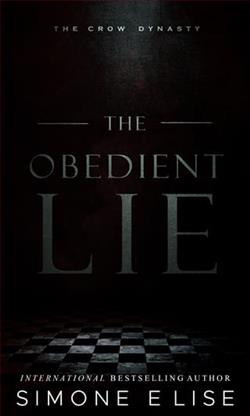Page 2 of Heart Cradle
Just stop fighting, it will be easier.
You could stay under.
Let it all go, let the water win.
The stillness was soothing, tempting.
She lay there, head spinning, giving in to the desolation but words came sharp and sudden, commanding and unyielding.
Enough, Maeve. You must take control.
She gritted her teeth and forced herself upright, water sloshing around her. Her lungs still strained and her limbs shook, but she was gasping, trying to breath, she was moving and present again. The panic hadn’t won, not this time. She dragged in a long, shaking breath, then another. Her mind locked onto the one thing she could still control, she had to make a plan.
She was broken, yes. She needed to rebuild, yes. She was lost, yes. But she could find her way back, she would not let them win, not ever.
By the time the water had gone cold, she had a plan, she climbed out of the bath on trembling legs, water dripping from her skin in slow, cold rivulets. She moved barefoot and silent to the mirror above the sink and she caught her reflection as she leaned forwards, bracing herself against the cold porcelain edge. Her bare skin gleamed under the flickering bathroom light. Wet brown hair clung to her face, neck, and back in heavy, dripping strands. Her hazel eyes stared back, they were bloodshot and tired.
Haunted.
Her gaze travelled down, over the rounded curve of her hips, her stomach. The swell of her breasts, rising and falling with each ragged breath she was trying to steady. Faint, pale-pink scars crossed her ribs, her shoulder, her thighs, echoes of the night they broke her. They burnt her, beat her, cut her and then left her for dead. She stared at them for a long time, not flinching or hiding, just observing her body.
Look what they’ve done and they’re still out there.
You are not dead, now you must find them.
Her fingers curled around the edge of the sink and she met her own eyes again.
You must end this, kill them, make the bastards pay.
Chapter Two – Rome
The city was chaotic, sweaty and alive in a way that made Maeve feel even more of a ghost than she already was. The taxi had dropped her on a narrow street where scooters screamed past and tourists bumbled under hats too wide and maps too large. She stood for a second with her large bag gripped in her hand, the sun pressing down on her skull like an assault. She wasn’t sure what she’d expected, something cleaner, maybe. She expected Rome to be more cinematic, instead, it felt too much and not enough.
She didn’t want to stay in hotels surrounded by people, talking and laughing. No, she wanted solitude. She wanted to know she was alone. The holiday flat she’d booked was up three flights of steep, scuffed stone stairs. She let herself in with the key supplied by the lady downstairs, who had offered to show her around. Maeve had declined with a strained smile.
She entered and locked the two bolts, checked them twice. Then she stood in the centre of the tiny living room, staring at the stained orange sofa like it might offer guidance.
It didn’t.
There was silence, then there wasn’t. A man on the street shouted in Italian, a baby cried in the flat above and somewhere, a dog barked once, before going quiet once more.
She let out a breath and started moving. The next five days passed in a rhythm that was part survival, part stubbornness. She walked, she stared at ruins and sculptures and let the weight of ancient things press into her bones. She ate and drank when she remembered to, mostly coffee and pastries. On the second evening she ate a bowl of carbonara that made her cry for no reason at all. The waiter stared, perhaps he thought she had been stood up, perhaps he thought her mad, she didn’t know.
She kept her hair down, let it tangle in the heat. Her feet blistered in her boots, and she wore the same loose dress three days in a row. She watched the tourists take selfies and imagined what she looked like to them, tired, alone and too quiet.
At night, she ran. Long, punishing routes along twisting, unfamiliar streets, through alleyways with broken pavement and past silent piazzas. No headphones, just the blows of her trainers against the ground and the pounding of her heart echoing in her ears. She ran to exhaust herself, tosilence the thoughts, to make herself afraid on purpose. She’d wait for the fear to rise, the flicker of shadow behind her, the sudden shout from a nearby window, the tight press of darkness between lamp posts, and then she’d keep running. Pushing harder, letting the panic crest, challenge it, and then chase it down until it broke.
Sometimes she ran hoping it would catch her, sometimes she ran so she’d remember she could still fight. Her hand never strayed far from the small bottle of self-defence spray clipped inside her waistband, the other curled into a fist. She watched everything, trained herself to notice movement, patterns and exits. She’d known how to defend herself before, but after the attack, she had doubled down, refined her reactions and drilled her body into obedience.
She was done being weak.
One night, after running for miles, she stood on the Ponte Sant’Angelo, breathless and burning, and watched the water churn below. Both hands curled around the railing, she thought of the daughter her parents once had, the woman she used to be, the woman she’d pretended to be. Calm, competent, distant but at peace.
“I don’t know who I am now,” she whispered, but the Tiber didn’t care.
She woke that night, startled and certain there was someone in the room with her. She prowled the flat, checking every room. It was empty, but her heart raced as she slumped onto the stained sofa and cried. She couldn’t escape them, they would find her and finish the job. She booked a flight there and then, the first one out to Lisbon.
Perfect.









